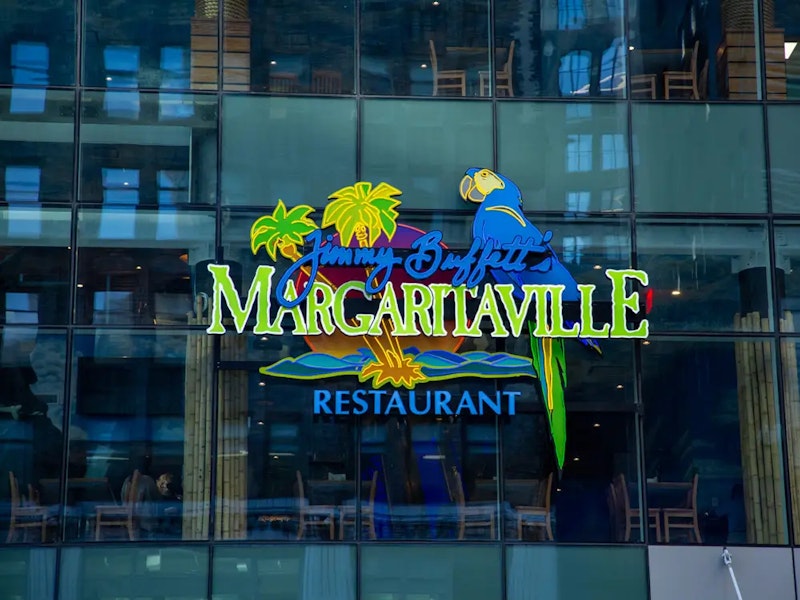Initially, upon reading last Friday that pop singer/entrepreneur Jimmy Buffett died at 76, I didn’t think much of it. Just another celebrity succumbing to the inevitable. I wasn’t a fan, but never found his laid-back music offensive, and on the rare occasion I heard, say, “Cheeseburger in Paradise” in a CVS, supermarket or ballgame, it just washed over me. (Unlike John Denver’s ear-bleeding “Thank God, I’m a Country Boy” at Baltimore’s Camden Yards, or Neil Diamond’s gooey “Sweet Caroline” at Fenway Park.) Among the several tweets I read on the subject, Jeff St. Clair’s was the best: “My first night on campus at AU in 1977 Buffett played an outdoor concert in the Woods-Brown Amphitheater right next to my dorm, opening for Roger McGuinn. Buffett had broken his leg & gamely played his set in a cast. The music was innocuous, his stories funny. Everyone was high.”
Upon further reflection, however, Buffett’s passing is more significant, I think, in American culture than The Band’s leader Robbie Robertson, Tom Verlaine or Gordon Lightfoot. That’s not a slight on those three-recently departed men, but rather an acknowledgement of Buffett’s multi-layered career, one that created a lifestyle for so many people of all ages. For example, in December of 1992, my wife and I, along with our two-month-old son, spent five days in Key West, an original Buffett beachhead that he later abandoned because of “commercialization,” which he helped create, a relatively easy flight with a newborn (back when airlines kept reasonably rigid schedules). We’d heard about the sunsets that rival those in Malibu (still the most glorious, especially from a motel on PCH), and the excellent Cuban food. Walking along the main drag of Duval St. the first morning there, I was taken aback by the number of older hippies playing guitars, latter-day hippies, polite panhandlers and the very casual attitude—which was good (no nastiness) and bad (very slow service)—and coming from New York City, it was an odd sight. (We’d been to Jamaica the previous year, and though the water was warm at the Half Moon Resort and jerk pork good enough for double orders, walking around the streets of Montego Bay wasn’t a load of fun.) Buffett’s influence was omnipresent, with his branded shops and restaurants, and though we didn’t frequent them, his ethos was in the air; maybe it was true, maybe not, but it felt like the small town (around 20,000, and 61 percent white, according to the latest census) had a fog of sweet marijuana wafting at all times. We liked it fine, although haven’t been back, despite many trips to Florida.
Years later, at a 2018 75th birthday weekend for my oldest brother held in Canouan, the luxurious Caribbean resort, there were about 100 people in attendance, a mixture of family, friends of the family and business associates, and each night after dinner the deejay, deferring to the demographics, played familiar songs and there was exuberant dancing. I don’t remember a single Buffett song played—it was mostly 1950s and 1960s favorites, a lot of Buddy Holly, Elvis, Little Richard, Richie Valens, the Stones and Beatles, the Doors, Byrds, Sam Cooke, Otis Redding and a slew of Motown hits—which caused one of my smart-aleck nephews, then 31, to good-naturedly quip: “I’m going out for a smoke. Anyone else want to escape Margaritaville?” And that was a running joke for our stay in Canouan, which I enjoyed, even though I was much closer in age to the “Do the Jerk” dancers than the third generation of the Smith clan.
Similarly, a couple of months ago I was on the phone with my son Booker and during the chat he mentioned that the night before a group of 15 clients and colleagues of his had dinner at a Margarita restaurant. I thought that was a euphemism for a noisy, theme restaurant with mediocre food, but it turned out he was at the Times Square Buffett joint. Not his choice, he said, but rather that of a few “Parrot Heads,” and since it wasn’t so expensive, and the customer’s always right, that’s where they went.
As a number of obituary writers—interspersed with Buffett-isms—have pointed out, Jimmy Buffett wasn’t an ordinary entertainer; he enjoyed playing concerts and the adoration of fans, but also became a billionaire parlaying his supposed slacker attitude into… a slacker empire, including hotels, cruises, restaurants, boutiques, best-selling books, film appearances and concerts. And that’s what sets him apart from contemporaries who are “leaving for the other side.” There are certain celebrities whose career transcends music, film, media, art, etc. When Paul McCartney and Bob Dylan die, they’ll be in that category, unlike Roger Daltrey or Ray Davies. Andy Warhol’s botched death in 1987 was like that, just as, in a way, was Roy Cohn’s. Another example: long-forgotten news broadcaster Ted Koppel, now 83, will evoke a certain era when he kicks, because of his “The Iran Crisis: America Held Hostage” reports (initially helmed by Frank Reynolds) on Nightline, which popularized that program. I don’t watch network or cable news shows today, but did pay at least multi-task attention to Nightline. Maybe Dan Rather, too, just because he’s a symbol of what went wrong in journalism, a legacy that remains to this day.
—Follow Russ Smith on Twitter: @MUGGER2023

